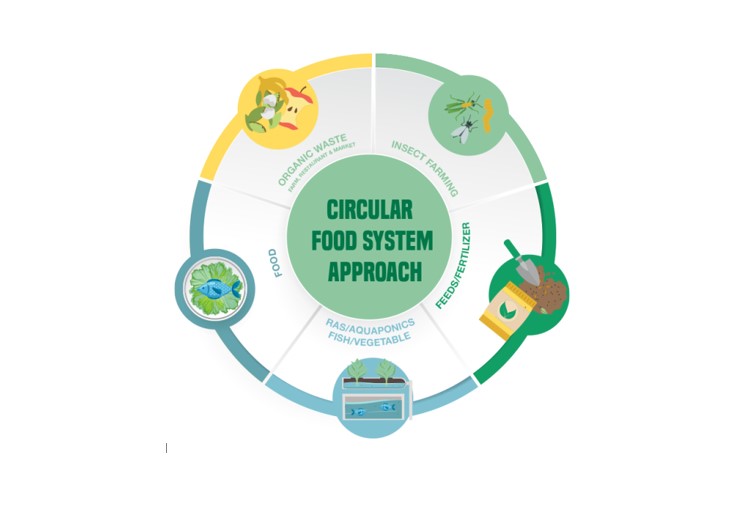
News
Industry update
Sustainability
Technology
EU-funded project incorporates RAS in circular food production initiative
February 2, 2023 By Nestor Arellano
 (Image: INCiTiS-FOOD)
(Image: INCiTiS-FOOD) Recirculating aquaculture systems (RAS) are part of a European Union co-funded program that aims to develop a circular food production serving communities across Africa.
INtegrated and Circular Technologies for Sustainable city region FOOD systems in Africa (INCiTiS-FOOD) kicked-off this week with the goal to co-create circular agri-food technologies, practices, and business models centering on RAS, soilless crop farming, and insect farming in the continent. These circular agri-food technologies, according to INCiTiS-FOOD, have been considered suitable for the context of African cities because they do not require great access to land, water, or other resources allowing Africa to thrive.
The project hopes to improve food and nutrition security in African city regions and reduce the food-system-related environmental footprint while contributing to circularity within four years.
“We will set up eight Living Labs in six African countries. Living labs will be turned into incubators of innovation and their mission will be to improve food and nutrition security in African city regions. Since current African food systems are failing to deliver desired outcomes and a quarter of those who inhabit African cities remain food insecure and malnourished, we need to redefine and modernize the production,” said Prof. Dr Gertrud Buchenrieder of the Universität der Bundeswehr München, and project coordinator. “There are different methods to prevent food instability: availability of nutritious and safe food through local production, food access – affordability, food utilization, reduction of food waste, and food stability at all times.”
The labs will be located in Kenya; Ghana, Nigeria, Sierra Leone; Cameroon, and Gabon.
The project will follow a Lean Start-up Methodology to achieve minimum viable products (MVPs).
These MVPs are expected to reach a sufficiently high technological, societal, and business readiness level in two years.
The MVPs are further validated in a demonstration phase (800-1000+ start-ups and scalable small and medium-sized enterprises) on the basis of two Open Calls for the Cascade Fund. Beneficiaries of the Cascade Fund will be surveyed to generate empirical evidence on the co-benefits of the INCiTiSFOOD project technologies and business models, which will guide urban food policy roadmaps.
Print this page